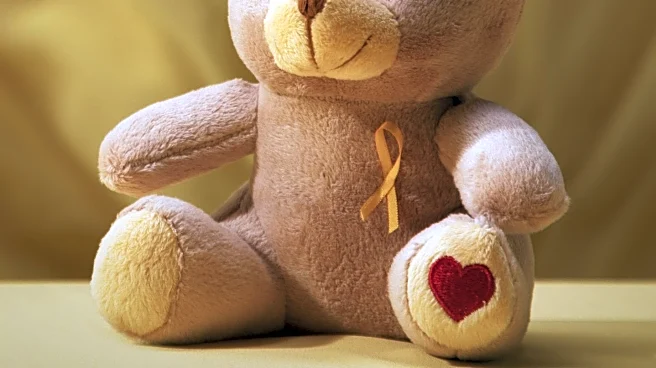What's Happening?
Laura Critchley, a 40-year-old mother, experienced a sudden health crisis during a work meeting, leading to the discovery of eight brain tumors. Initially suspected to be a stroke, CT scans revealed the tumors, one of which was bleeding, causing rapid
deterioration. Critchley was hospitalized and stabilized with steroids, awaiting surgery to remove the tumors. Her partner, Lee Vaughan, shared the emotional toll of the diagnosis, initially feared to be stage 3 secondary brain cancer. However, further tests revealed it was not cancer, though the exact cause remains unknown. Critchley is focused on recovery and being present for her children as she prepares for surgery.
Why It's Important?
Critchley's experience highlights the importance of recognizing and addressing health symptoms promptly, as well as the emotional and physical challenges faced by individuals and families during medical crises. The case underscores the need for awareness and support for those affected by brain tumors, which impact thousands annually. It also emphasizes the role of medical professionals in providing accurate diagnoses and effective treatment plans. The situation serves as a reminder of the unpredictability of health issues and the resilience required to navigate them.
What's Next?
Critchley is scheduled for surgery to remove the tumors, with pathology tests to determine their cause. The medical team aims to provide clarity and a path forward for treatment. As Critchley and her family await the procedure, they remain hopeful for a positive outcome. The case may prompt further research into brain tumor causes and treatments, potentially benefiting others facing similar health challenges. Support networks and resources for families dealing with serious health issues may also be strengthened as awareness grows.
Beyond the Headlines
Critchley's story sheds light on the societal pressures faced by working parents, often prioritizing career and family over personal health. It raises questions about the balance between professional responsibilities and self-care, encouraging a cultural shift towards prioritizing health and well-being. The case also highlights the emotional impact of health crises on families, emphasizing the need for psychological support and community resources.















